To complement other solutions, I would like to explore the high-performance corner of this problem, that is, the case when the table is large, and one needs to perform many queries. Obviously, some kind of preprocessing can save a lot of execution time in such a case. I would like to show a rather obscure but IMO elegant solution based on a combination of Dispatch and ReplaceList. Here is a small table for an illustration (I use strings for all the entries, to keep it close to the original question):
makeTestTable[nids_, nelems_] :=
Flatten[Thread[{"ID" <> ToString@#,
ToString /@ Range[#, nelems + # - 1]}] & /@ Range[nids], 1]
In[57]:= (smallTable = makeTestTable[3,5])//InputForm
Out[57]//InputForm=
{{"ID1", "1"}, {"ID1", "2"}, {"ID1", "3"}, {"ID1", "4"}, {"ID1", "5"},
{"ID2", "2"}, {"ID2", "3"}, {"ID2", "4"}, {"ID2", "5"}, {"ID2", "6"},
{"ID3", "3"}, {"ID3", "4"}, {"ID3", "5"}, {"ID3", "6"}, {"ID3", "7"}}
The preprocessing step consists of making a Dispatch-ed table of rules from the original table:
smallRules = Dispatch[Rule @@@ smallTable];
The code to get (say, for "ID2") the values is then:
In[59]:= ReplaceList["ID2", smallRules]
Out[59]= {"2", "3", "4", "5", "6"}
This does not look like a big deal, but let us move to larger tables:
In[60]:= Length[table = makeTestTable[1000,1000]]
Out[60]= 1000000
Preprocessing step admittedly takes some time:
In[61]:= (rules = Dispatch[Rule @@@ table]); // Timing
Out[61]= {3.703, Null}
But we only need it once. Now, all subsequent queries (perhaps except the very first) will be near instantaneous:
In[75]:= ReplaceList["ID520",rules]//Short//Timing
Out[75]= {0.,{520,521,522,523,524,525,<<988>>,1514,1515,1516,1517,1518,1519}}
while an approach without the preprocessing takes a sizable fraction of a second for this table size:
In[76]:= Cases[table,{"ID520",_}][[All,2]]//Short//Timing
Out[76]= {0.188,{520,521,522,523,524,525,<<988>>,1514,1515,1516,1517,1518,1519}}
I realize that this may be an overkill for the original question, but tasks like this are rather common, for example when someone wants to explore some large dataset imported from a database, directly in Mathematica.

